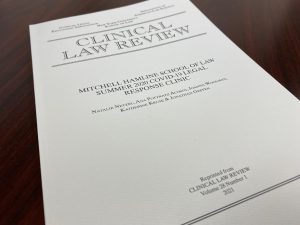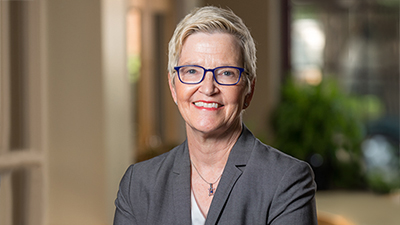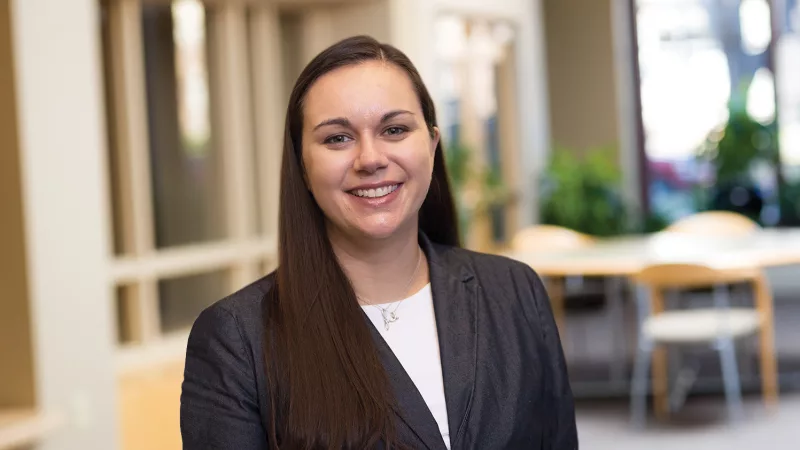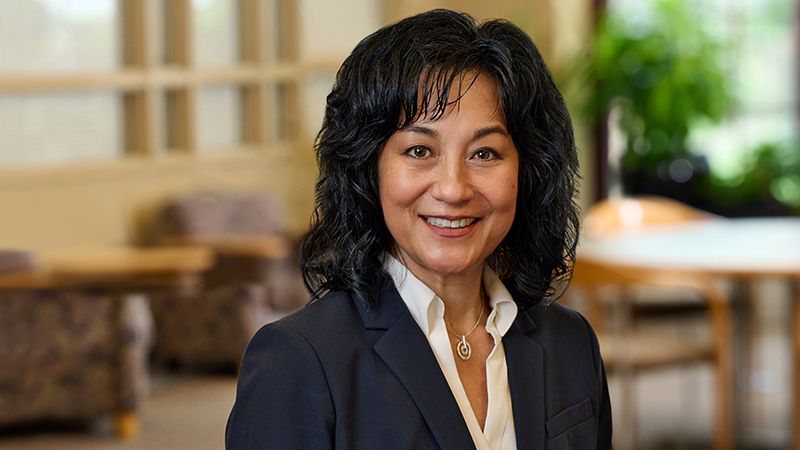 When the COVID-19 pandemic shut down business, schools, and much of regular life in the spring of 2020, several clinical faculty members at Mitchell Hamline were soon thinking about the collateral consequences of those shutdowns: Visitations in the child welfare system would be disrupted; undocumented immigrants and mixed-status families would need help accessing some of the federal relief approved by Congress; prison inmates with medical conditions would need help applying for conditional release to not be in close quarters with the virus spreading; and frontline healthcare workers might need help with emergency planning matters like power of attorney and healthcare directives, just in case.
When the COVID-19 pandemic shut down business, schools, and much of regular life in the spring of 2020, several clinical faculty members at Mitchell Hamline were soon thinking about the collateral consequences of those shutdowns: Visitations in the child welfare system would be disrupted; undocumented immigrants and mixed-status families would need help accessing some of the federal relief approved by Congress; prison inmates with medical conditions would need help applying for conditional release to not be in close quarters with the virus spreading; and frontline healthcare workers might need help with emergency planning matters like power of attorney and healthcare directives, just in case.
What quickly came together was a unique clinic with five instructors to enlist students to work with clients on these and other legal matters that emerged during the pandemic. There was only room for ten students, and the spots filled quickly.
Then, a week before class was to start, George Floyd was murdered by a police officer just a few miles from the law school. In racing to get the class together, faculty realized they also needed a moment to give students space to process that trauma.
The professors – Natalie Netzel, Ana Pottratz Acosta, Joanna Woolman, Katherine Kruse, and Jonathan Geffen – detailed their journey to creating the one-time clinic and their experience working with students, in a co-written article in the Clinical Law Review.
Because of the closeness of the class to both an emerging pandemic and the killing of George Floyd, the experience became more than just pairing students with clients to gain real world legal experience, a benchmark of how Mitchell Hamline prepares its students to be ready to be lawyers upon graduation.
The class was also a lesson – for both faculty and students – in trauma-informed lawyering and how to incorporate good mental health practices in legal practice. “In embarking on work advocating for those in crisis,” the authors wrote in the article, “we also knowingly put ourselves in the lives of others in moments where they are experiencing tremendous trauma and inevitably experience trauma ourselves.
“When a person encounters the trauma of others on a regular basis over an extended period of time, it is utterly foreseeable and completely normal that they will experience the negative effects of vicarious trauma.”
Mitchell Hamline faculty
The latest from Faculty in the News
Global News June 19, 2025
DRG News June 17, 2025
ThinkTech Hawaii May 14, 2025
The latest faculty publications
UpToDate May 15, 2025
Palliative Care: Medically Futile and Potentially Inappropriate Therapies of Questionable Benefit
Austin American-Statesmen (May 19, 2025) May 19, 2025
31 Dispute Resolution Magazine (April 2025) April 15, 2025
The latest faculty headlines
Professor Sandeen receives Lifetime Achievement Award from trade secret group
The Trade Secret Scholars Lifetime Achievement Award recognizes and appreciates Sandeen’s dedication, friendship, and pioneering contributions to the law of trade secrets. A seemingly regular appearance at the Trade Secret Scholars Workshop would turn …
Professor Pottratz Acosta weighs in on immigration issues in wake of election
Professor Ana Pottratz Acosta After November’s presidential election, many are speculating about what the immigration system will look like under a second Trump administration, and what that means for Minnesota. Professor Ana Pottratz Acosta has been q …
Kaori Kenmotsu brings embodied approach to teaching DRI courses
Returning to her alma mater as an assistant professor of law, Kaori Kenmotsu ’22 brings to Mitchell Hamline a breadth of experience in the worlds of dance, theater, yoga, public policy, community organizing, teaching, and now law. For Kenmotsu, however …







